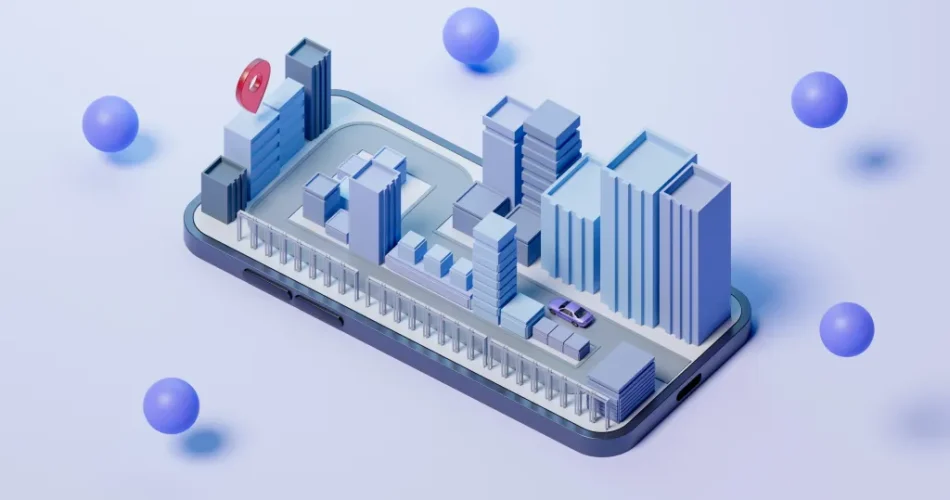In the ever-evolving realm of technology, decentralized applications (DApps) have emerged as a revolutionary force, challenging the centralized nature of traditional internet applications. DApps operate on blockchain technology, enabling peer-to-peer interactions and fostering a more open, transparent, and empowering digital landscape.
Decentralization: A Paradigm Shift for the Internet
At the heart of DApps lies decentralization, a concept that fundamentally reshapes the internet’s architecture. Traditional applications rely on centralized servers and intermediaries, giving a handful of entities immense control over user data, transactions, and services. In contrast, DApps operate on a decentralized network of nodes, dispersed across the globe, eliminating the dominance of any single entity. This distributed model empowers individuals and communities to take ownership of their digital experiences and data.
Blockchain: The Foundation of Trust and Transparency
Blockchain technology, the bedrock of DApps, provides a secure and transparent ledger for recording transactions and maintaining data integrity. This distributed ledger, maintained by a network of computers, ensures that DApps are resistant to censorship, manipulation, and downtime. Every transaction on the blockchain is visible to all participants, fostering trust and accountability among users.
Smart Contracts: Automation and Enforcement of Agreements
Smart contracts, self-executing contracts embedded within the blockchain, play a pivotal role in DApps. These contracts automate the execution of agreements, eliminating intermediaries and reducing the potential for errors and fraud. Smart contracts are written in code and cannot be altered once deployed, ensuring immutability and enhancing trust and security.
Expanding the Possibilities: A Diverse Landscape of DApps
The applications of DApps are vast and ever-expanding, encompassing a wide range of sectors and functionalities. Here are some of the key categories of DApps:
-
Decentralized Exchanges (DEXs): DEXs facilitate direct peer-to-peer cryptocurrency trading, eliminating the need for centralized exchanges and reducing transaction fees.
-
Decentralized Finance (DeFi) Applications: DeFi applications offer a range of financial services, such as lending, borrowing, and asset management, without the involvement of traditional financial institutions.
-
Non-fungible Tokens (NFTs): NFTs represent unique digital assets, enabling secure ownership and verification of digital collectibles, artwork, and other valuable items.
-
Decentralized Content Management Platforms: DApp-based content management platforms empower creators and communities to own and control their content, fostering a more equitable distribution of value.
-
Gaming and Entertainment DApps: DApps are revolutionizing the gaming industry by introducing provably fair games, player-owned economies, and new forms of interactive entertainment.
Transforming Industries: The Impact of DApps
The adoption of DApps is poised to have a profound impact on various industries, including:
-
Finance: DApps are democratizing financial services, empowering individuals to access loans, manage their finances, and participate in new investment opportunities.
-
Healthcare: DApps are enabling secure and patient-centric healthcare data management, improving transparency and reducing administrative burdens.
-
Governance: DApps are facilitating more inclusive and participatory governance models, empowering communities to make informed decisions and hold their representatives accountable.
-
Entertainment: DApps are revolutionizing the entertainment industry by creating new forms of interactive experiences, player-owned economies, and decentralized distribution of content.
Addressing Challenges, Embracing the Future
As DApps continue to evolve, they face several challenges and opportunities:
-
User Experience: Enhancing the user experience is crucial to attract mainstream adoption and make DApps more accessible to a broader audience.
-
Scalability: Addressing scalability issues will enable DApps to handle increasing transaction volume and support larger user bases.
-
Regulatory Framework: Develop clear regulatory frameworks that foster innovation while protecting users and investors.
-
Community Engagement: Foster increased community engagement and participation in decision-making to build a sense of ownership and responsibility among users.
Conclusion: DApps – Shaping a More Equitable and Empowered Digital Future
DApps represent a transformative force in the digital landscape, empowering individuals, communities, and industries to take control of their data, finances, and experiences. As DApps mature and overcome challenges, they have the potential to revolutionize various sectors, creating a more equitable, transparent, and empowered digital future.
here are some additional resources for learning more about decentralized applications (DApps):
- Decentralized Apps (DApps) 101: A comprehensive guide to DApps from Coindesk https://www.coindesk.com/learn/what-is-a-decentralized-application/
- What are Decentralized Applications (DApps)?: A beginner’s guide from Binance Academy https://academy.binance.com/en/glossary/decentralized-application
- Decentralized Applications (DApps) Explained: A detailed explanation of DApps from Investopedia https://www.investopedia.com/terms/d/decentralized-applications-dapps.asp
- Decentralized Applications (DApps) for Dummies: A simplified explanation of DApps from DApp University https://www.dappuniversity.com/
- The Future of the Internet: Decentralized Applications (DApps): Explore the potential of DApps for the future of the internet https://link.springer.com/article/10.1007/s11036-018-01211-5
